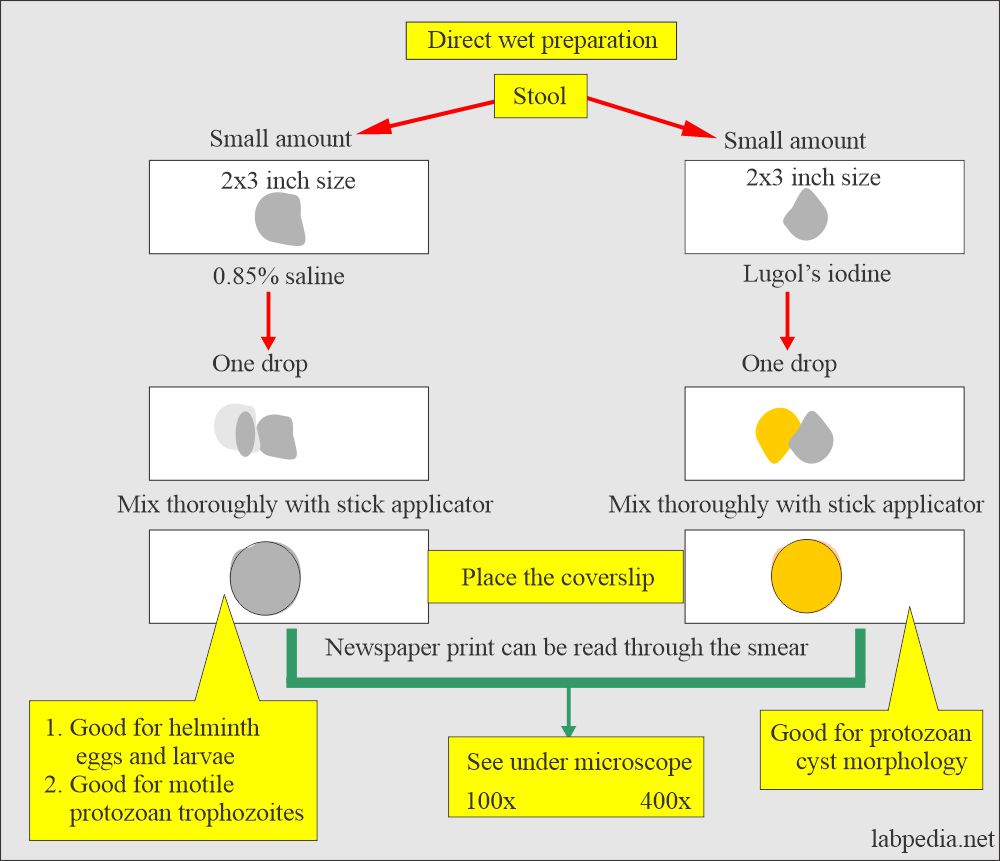Lugol’s Iodine Solution
- Lugol’s iodine is mainly used in the wet preparation of stool.
Ingredients of Lugol’s Iodine Solution:
- Iodine powder = 5 grams.
- Potassium iodide = 10 grams.
- Distilled water = 100 mL.
Procedure for Lugol’s Iodine Solution preparation:
- Dissolve the potassium iodide in the distilled water.
- Add iodine crystals slowly and keep shaking the container (test tube) until these are dissolved.
- Filter the resulting solution.
- This is the stock solution.
- For the working solution:
- Dilute the stock solution 1:5 with distilled water.
- You can use this working solution for 2 to 3 weeks and make a new working solution.
Procedure for stool examination:
- Make a direct wet smear.
- A small portion of the stool is mixed with a drop of saline and Lugol iodine solution.
- Place the cover slip on it.
- The smears should be thin so you can read the newspaper under the slide.
- Check for the amoebae and flagellates. Also, look for cysts.
Result of Lugols iodine:
- Lugol iodine will stain the cyst of amoebae and other protozoa.
- Iodine stain will show the details which can not be seen by saline preparation.
- Trophozoites are rapidly killed by iodine and may not be identifiable.
Important note:
- When the iodine crystals disappear from the bottom of the bottle, the stock solution is no longer to be used.
- Now you need to replace the working solution.
Questions and answers:
Question 1: What is the use of Lugol's iodine?
Question 2: What will happen to trophozoites by Lugol's iodine?


When the iodine crystals disappear from the bottom of the bottle, the stock solution is no longer to be used. Why ??? How strong is this solution ?
regards Paul Sz.
It looks the concentration of the solution will change.
What is the resulting percentage of the Lugol’s iodine in this protocol?
It is 5% as we add 5 grams into 100 mL.
Why iodine pellet are not completely dissolve despite adding potassium iodide
I think that is why filtration is advised.